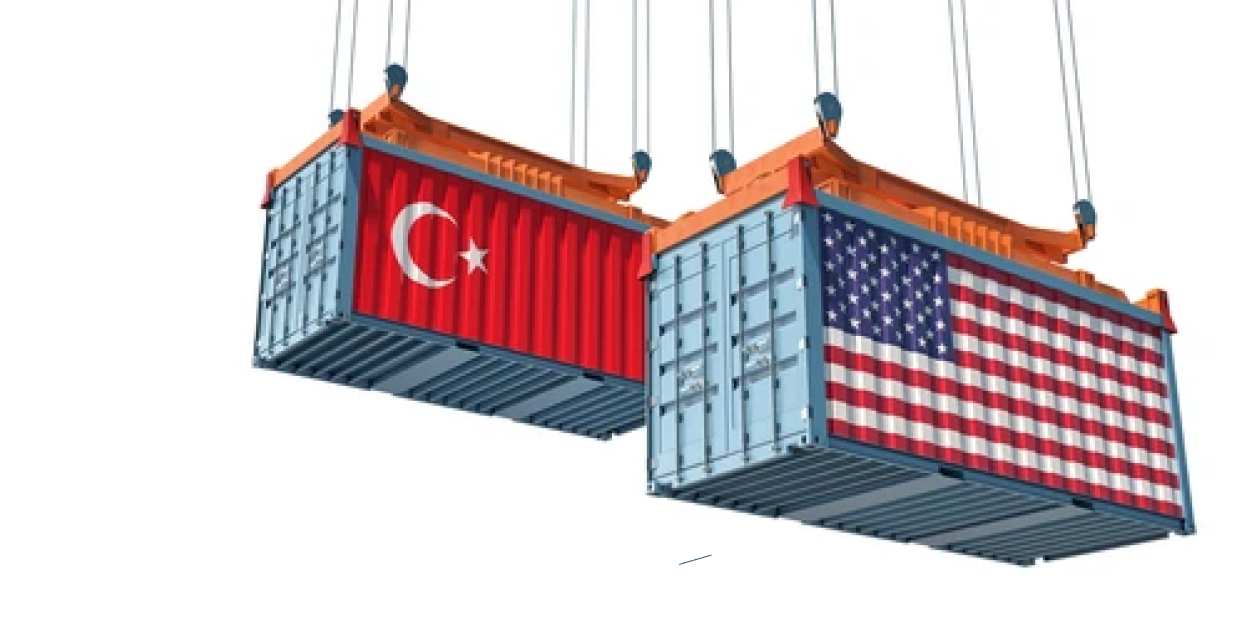
5 Essential Tips for Shipping from Turkey to the USA: Streamline Your Supply Chain
In today’s global economy, shipping products from one country to another is a crucial part of many businesses. Turkey has become a key player in international trade, providing a wide range of goods that are in demand worldwide. If you’re looking to streamline your supply chain and ensure smooth shipping from Turkey to the USA, it’s important to be well-prepared and understand the complexities involved.
This article will cover 5 essential tips for shipping from Turkey to the USA, helping you enhance efficiency, avoid delays, and optimize costs while maintaining compliance with international regulations.

1. Choose the Right Shipping Method
The first step in ensuring seamless shipping from Turkey to the USA is selecting the most appropriate shipping method. The two primary options are air freight and sea freight, each with its own advantages depending on your specific needs.
- Air Freight: Ideal for high-value, time-sensitive products. Air freight is faster but usually more expensive compared to sea freight. It’s the preferred method for shipments that require urgent delivery.
- Sea Freight: Better suited for bulk shipments or items that are not time-sensitive. While sea freight takes longer (up to several weeks), it is far more cost-effective for large volumes. Container shipping is the most common method for transporting goods by sea.
How to Choose?
- Cost: If cost is a primary concern, sea freight will usually be the better option. However, for high-value goods where time is critical, air freight might be worth the investment.
- Time Sensitivity: Urgent shipments, especially in industries like fashion, electronics, or medical equipment, may benefit from the speed of air freight.
- Size and Volume: Large, bulky goods like machinery or raw materials are best suited for sea freight.
Bonus Tip: Consider consolidated shipping if you have smaller loads. This allows you to share container space with other businesses, reducing costs while still shipping by sea.
2. Understand Customs Regulations and Duties
Navigating customs regulations between Turkey and the USA is crucial to avoiding delays and penalties. The USA has strict import rules, and non-compliance can result in your goods being held at customs, leading to costly delays. It’s important to familiarize yourself with the rules for shipping from Turkey to the USA before starting the process.
Key Considerations:
- Tariff Codes: Each product category has a specific Harmonized System (HS) Code used to determine duties and taxes. Ensure your products are classified correctly to avoid issues at customs.
- Duties and Taxes: The USA imposes import duties on various goods. Research the applicable rates for your products to budget accurately. Turkey and the USA do not have a free trade agreement, so most products are subject to duties unless specifically exempt.
- Required Documentation: Ensure you have all necessary documents, including:
- Commercial Invoice: A detailed description of the goods, their value, and the origin.
- Bill of Lading: A legal document that details the shipment, including what is being shipped and to whom.
- Packing List: Lists the goods in the shipment, with specific details for each item.
- Certificate of Origin: May be required to prove the origin of goods for customs purposes.
Bonus Tip: Hiring a customs broker can simplify the process by ensuring your documentation is correct and up to date. Brokers are experts in navigating customs and can expedite clearance.
3. Optimize Packaging for Efficiency and Protection

Proper packaging is essential when shipping from Turkey to the USA, as goods will be handled multiple times throughout the journey. Optimizing your packaging can help protect your products, reduce shipping costs, and improve efficiency.
Why Packaging Matters:
- Minimize Damage: Well-packaged goods are less likely to be damaged in transit. Use high-quality materials like corrugated boxes, bubble wrap, and protective foam.
- Reduce Volume and Weight: Shipping costs are often calculated based on the size and weight of your shipment. By using compact, lightweight packaging, you can reduce your shipping expenses.
- Compliance: Ensure that your packaging complies with both Turkish and US regulations, including labeling requirements and any restrictions on materials (e.g., wood packaging must be treated for international shipments).
Bonus Tip: Consider sustainable packaging solutions. Many companies are now opting for eco-friendly materials to minimize environmental impact, and it can also appeal to eco-conscious customers.
4. Partner with Reliable Shipping Companies
A key factor in streamlining your supply chain is partnering with a reliable shipping company. Whether you’re shipping by air or sea, working with a logistics provider that understands the complexities of international trade will help ensure your shipments arrive on time and in good condition.
What to Look for in a Shipping Company:
- Experience in International Shipping: Choose companies that have a proven track record in handling shipments between Turkey and the USA.
- Freight Tracking: Modern logistics companies offer advanced tracking solutions, allowing you to monitor your shipment in real-time. This helps you stay informed and respond quickly to any delays or issues.
- Customer Support: Strong customer service is essential for addressing any concerns or complications that may arise during transit.
Bonus Tip: Don’t overlook freight forwarders. These companies handle every aspect of the shipping process, from negotiating rates to ensuring that all customs paperwork is in order. A freight forwarder can save you time and effort by managing the logistics of your supply chain.
5. Plan for Potential Delays and Costs

Even with the best planning, international shipping comes with risks, and delays can occur. From customs inspections to unforeseen weather conditions, various factors can impact the shipping timeline. It’s important to build flexibility into your supply chain and prepare for any additional costs.
Key Strategies to Mitigate Delays:
- Track Shipping Times: Historical data on shipping routes from Turkey to the USA can help you estimate delivery times. Make sure to plan for peak periods, such as holiday seasons or global events that may slow down shipping.
- Account for Contingencies: Have a backup plan in place in case your shipment is delayed. This may involve maintaining extra inventory in the USA or working with multiple shipping providers to diversify risk.
- Monitor for Hidden Costs: In addition to duties and taxes, consider fees like fuel surcharges, terminal handling charges, or demurrage (the cost of keeping a container at a port beyond the free time limit). These can add up quickly if not accounted for in advance.
Bonus Tip: Consider insurance for your shipments. While many shipping companies offer some level of coverage, purchasing additional insurance can provide peace of mind, particularly for high-value goods.
Conclusion: Streamline Your Supply Chain for Success
Shipping from Turkey to the USA can be a complex process, but with the right approach, it can be streamlined for maximum efficiency. By choosing the correct shipping method, understanding customs regulations, optimizing your packaging, partnering with reliable logistics providers, and preparing for potential delays, you can enhance your supply chain and minimize disruptions.
Staying proactive and informed will help you avoid common pitfalls and ensure that your goods reach their destination on time and within budget. Whether you’re shipping textiles, machinery, or consumer goods, these 5 essential tips for shipping from Turkey to the USA will set you on the path to success, ensuring smoother operations and a more efficient supply chain.





